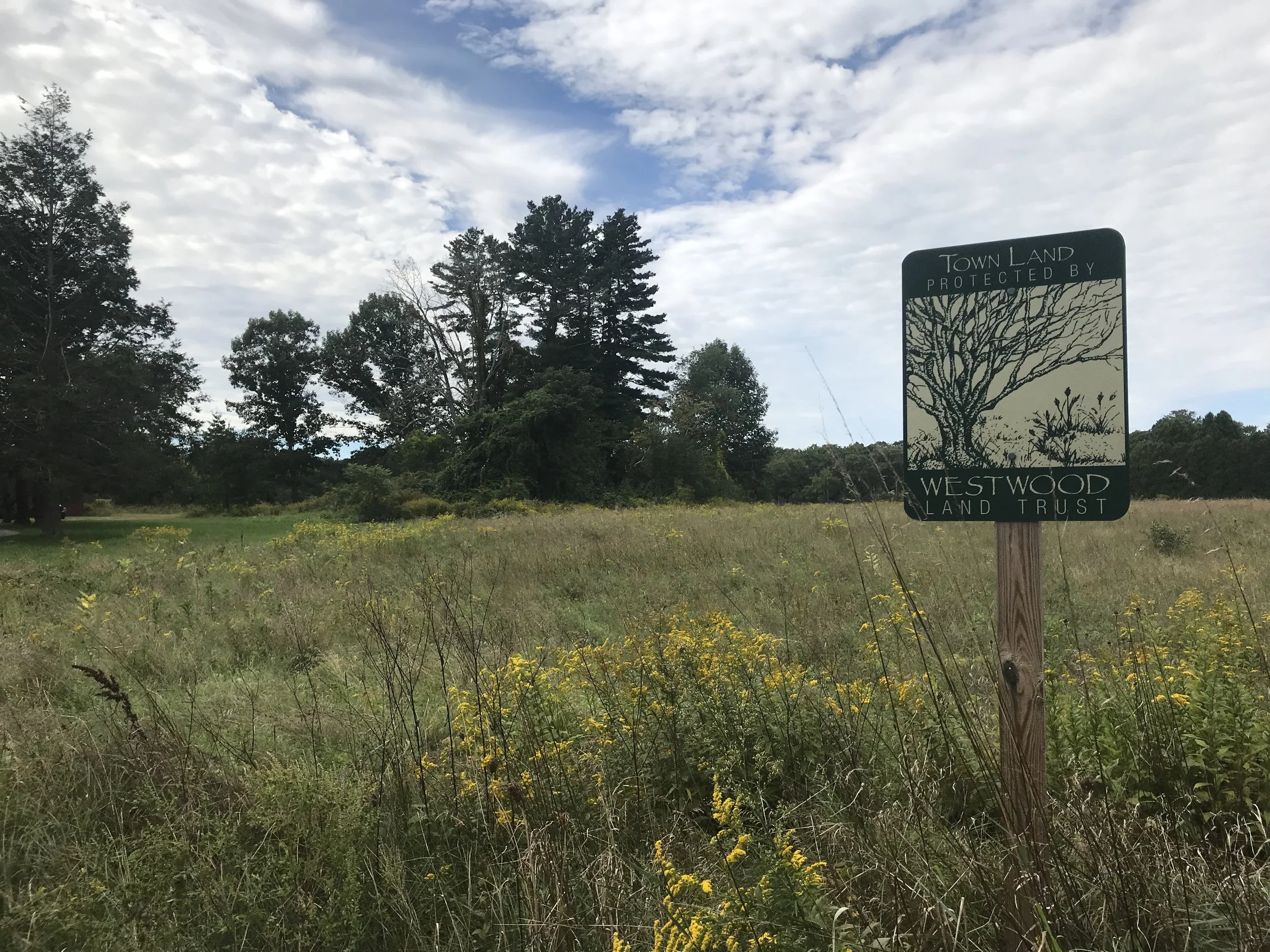
Frequently asked questions.
Get The Facts
-
Conservation Restrictions are legally binding restrictions that landowners voluntarily put on their land to ensure that the land will be protected as open space forever. A Conservation Restriction (CR), when granted by the landowner, is typically given to a land trust or other charitable organization, which will then have the right to enforce it if anyone, including the landowner, seeks to use the land in a way not permitted by the restriction.
-
Conservation restrictions are contracts that are intended to protect land. The holders of those restrictions are non-profit organizations dedicated to furthering the public good. They should not have to spend money and scarce economic resources defending against lawsuits that seek to erode the public benefits of those restrictions. If successful, this lawsuit would destroy one of Westwood’s most valuable ecological treasures.
-
Clapboardtree Meadow is a pristine, ecologically significant meadow owned by Westwood residents. In its current state, it supports biodiversity, provides natural flood control, and contributes to clean air and water.
-
No. The Land Trust’s legal fees are being funded by concerned residents who oppose the town’s efforts to undermine the Land Trust’s mission to conserve land in Westwood. By contrast, the town is using taxpayer dollars in its lawsuit against the Land Trust.
-
Conservation restrictions protect open spaces, natural beauty, and community character of Westwood for current and future generations. Undermining these protections risks the environment and degrades an important public asset that benefits the whole town.
-
No. Massachusetts law requires towns to follow a competitive bidding process when leasing municipal land, which means they cannot simply pick a specific tenant. If the town decides to lease land for agricultural use, the town would have to issue a request for proposals and award the lease according to state procurement rules. Under this statutory process, there is no guarantee that the Bean Farm would have the winning bid.
-
Agricultural activity is not permitted as of right under the Conservation Restriction (CR). The CR prohibits removing existing vegetation, planting new vegetation, and using pesticides and biocides, all of which would happen if the land were converted to a farming use. While the CR could allow an agricultural use as an exception with the Land Trust’s permission, the exception is narrow. The landowner must show that the proposed agricultural use will not materially impair the CR’s purpose or other significant conservation interests. In this instance, the Land Trust concluded that the proposed agricultural activity would run afoul of the CR’s purpose and other significant conservation interests. Among other things, it would destroy the existing mature meadow and replace it with an active farming operation; introduce herbicides and pesticides; threaten the health of the nearby stream and the meadow’s wetlands; uproot natural plantings; invite invasive and non-native species; destroy the existing biodiversity and habitat for many of the meadow’s important plant and animal species; and impose substantial cost and time to restore the meadow once the proposed farming use had ended.
-
Absolutely not. The Clapboardtree Meadow is a pristine ecological resource. It is free of invasive species, which makes it unusual and highly valuable compared to many open spaces in Massachusetts. Its natural meadow ecosystem supports biodiversity by providing habitat for native plants, pollinators, and wildlife that rely on grassland environments. Meadows like this help maintain soil health, improve groundwater recharge, and protect water quality by filtering runoff. They also offer a living classroom for environmental education and a place for residents to enjoy the natural character of Westwood. The soil is normal and supports many native plants and ecosystems, including the meadows, pines, and blueberries that define the region’s landscape. Preserving the meadow in its natural state ensures that these ecological benefits continue for future generations.
-
No. Agricultural activities are not automatically allowed. The Conservation Restriction states that an agricultural use needs prior approval from the Westwood Land Trust. To apply for the Land Trust’s approval, the Town must show in detail what activity the Town intends to undertake. The Town must “describe the nature, scope, design, location, timetable. and any other material aspect of the proposed activity in sufficient detail to permit the Land Trust to make an informed judgment as to its consistency with the purposes of this Conservation Restriction.” In this case, the Town’s description showed that the activity would materially impair the CR’s purposes. The CR also does not permit leasing the land to a third party for farming.
-
To help save Clapboardtree Meadow, please click here to join with fellow Westwood residents in supporting the Land Trust.
Mowing
The
Meadow
-
Mowing is essential to prevent the encroachment of woody plants and invasive species, ensuring that wildflowers and native grasses remain dominant. Without periodic mowing, shrubs and trees can quickly take over, outcompeting the native meadow plants that support pollinators and wildlife.
-
Fall is the best time to mow an established meadow in New England. This timing ensures that wildlife activity dependent on the meadow, such as nesting, is completed. A fall mowing also allows most native plants to flower and set seed, supporting insects, birds, and other wildlife. Before then, many wildflower species (such as goldenrod and New England aster) provide late-season resources for pollinators.